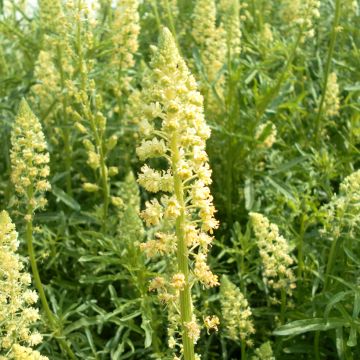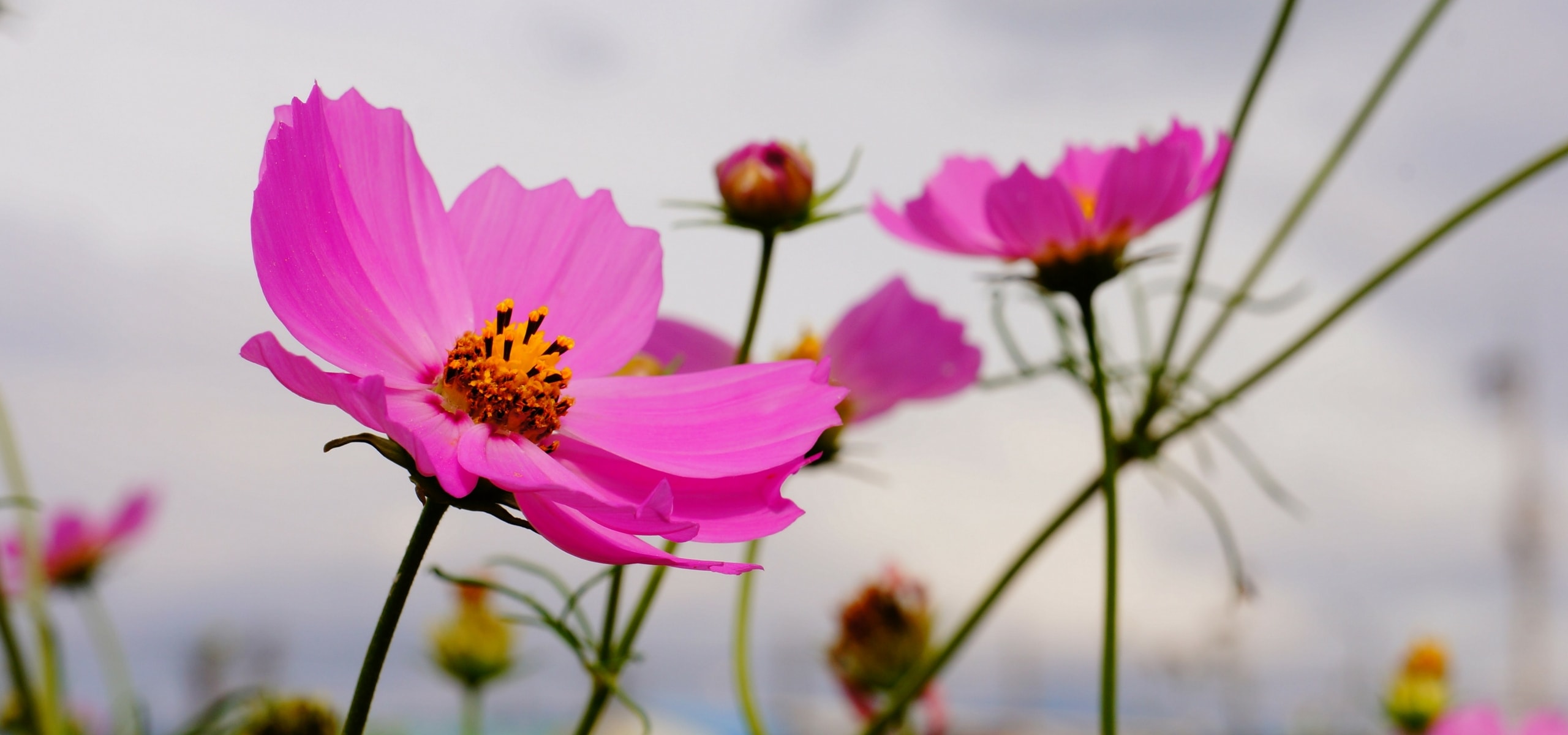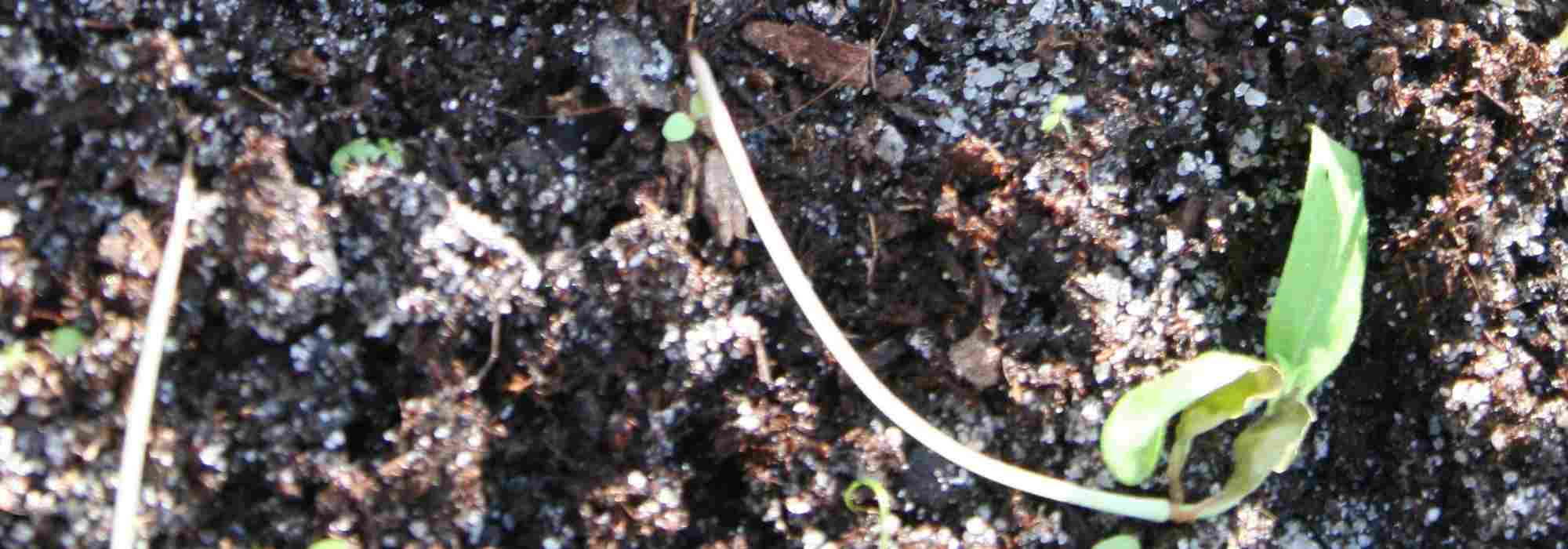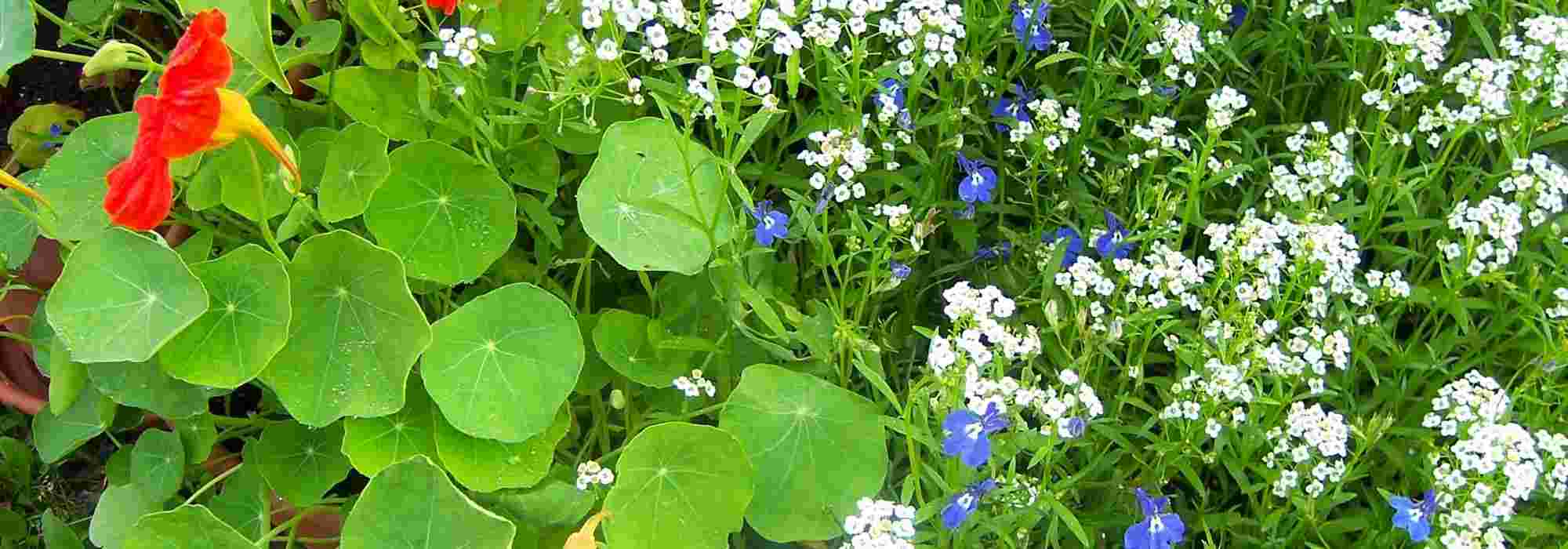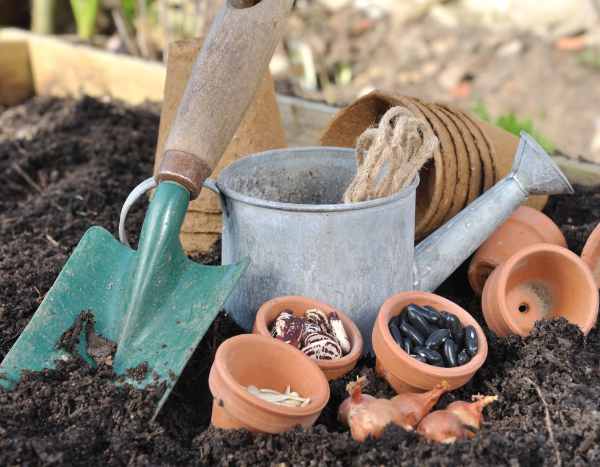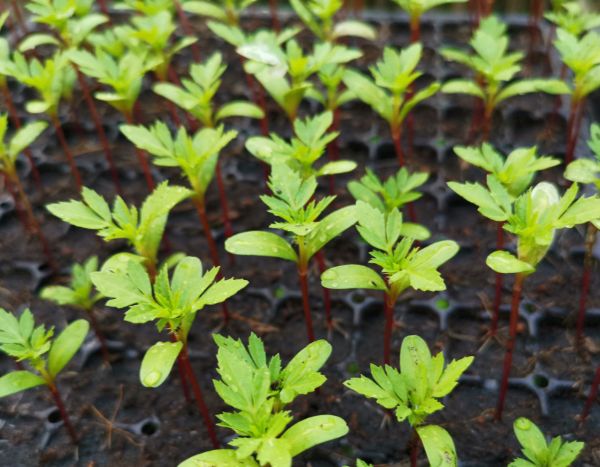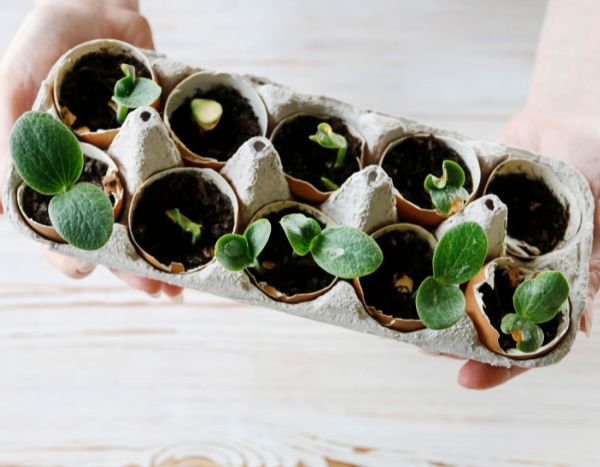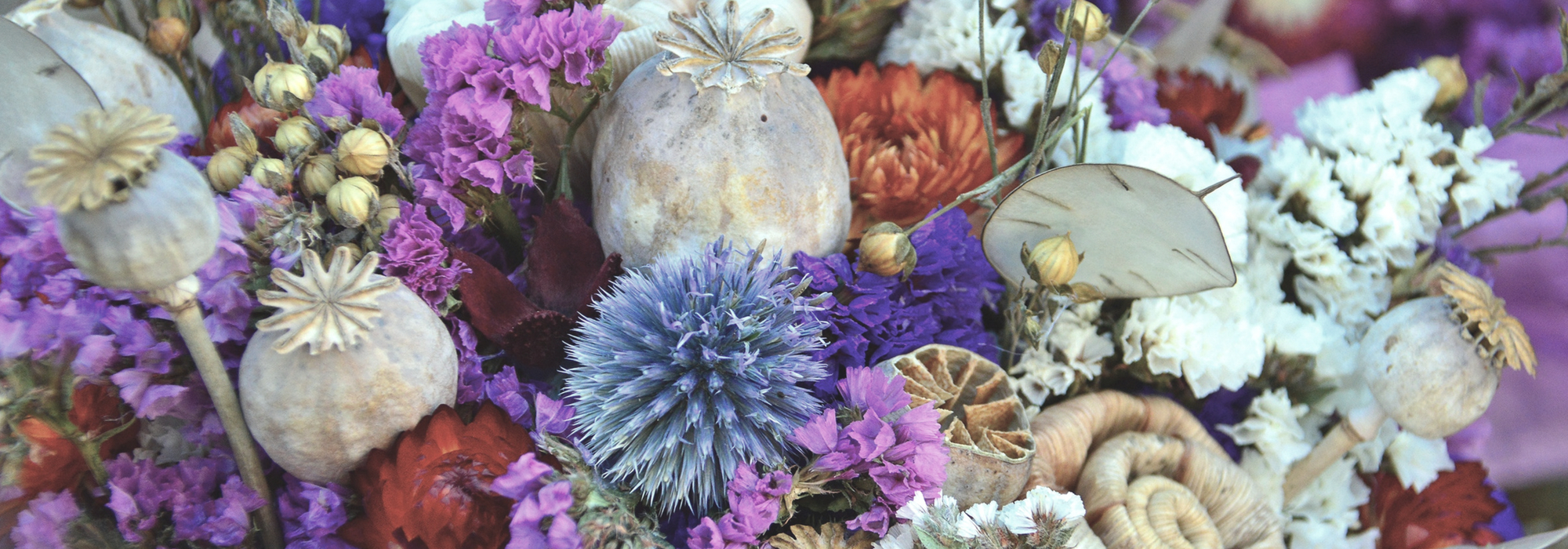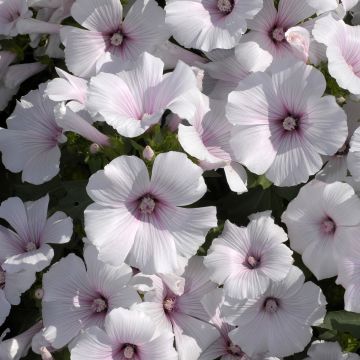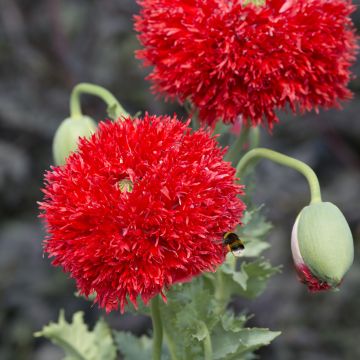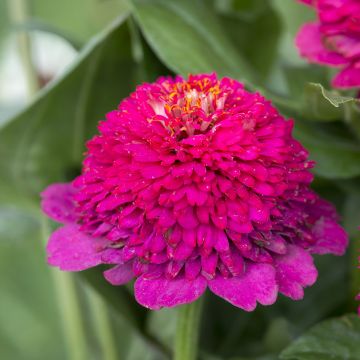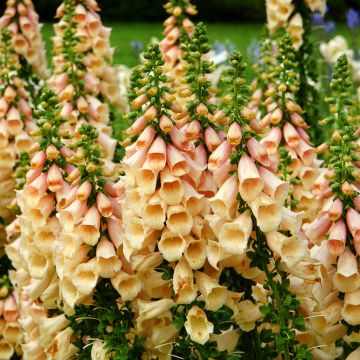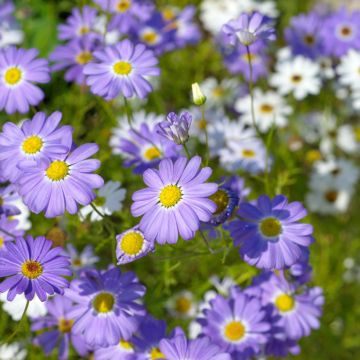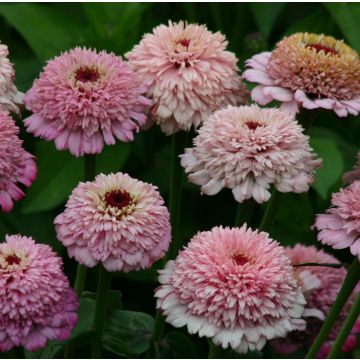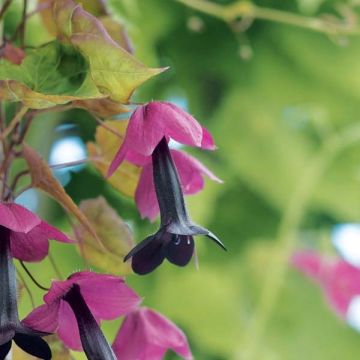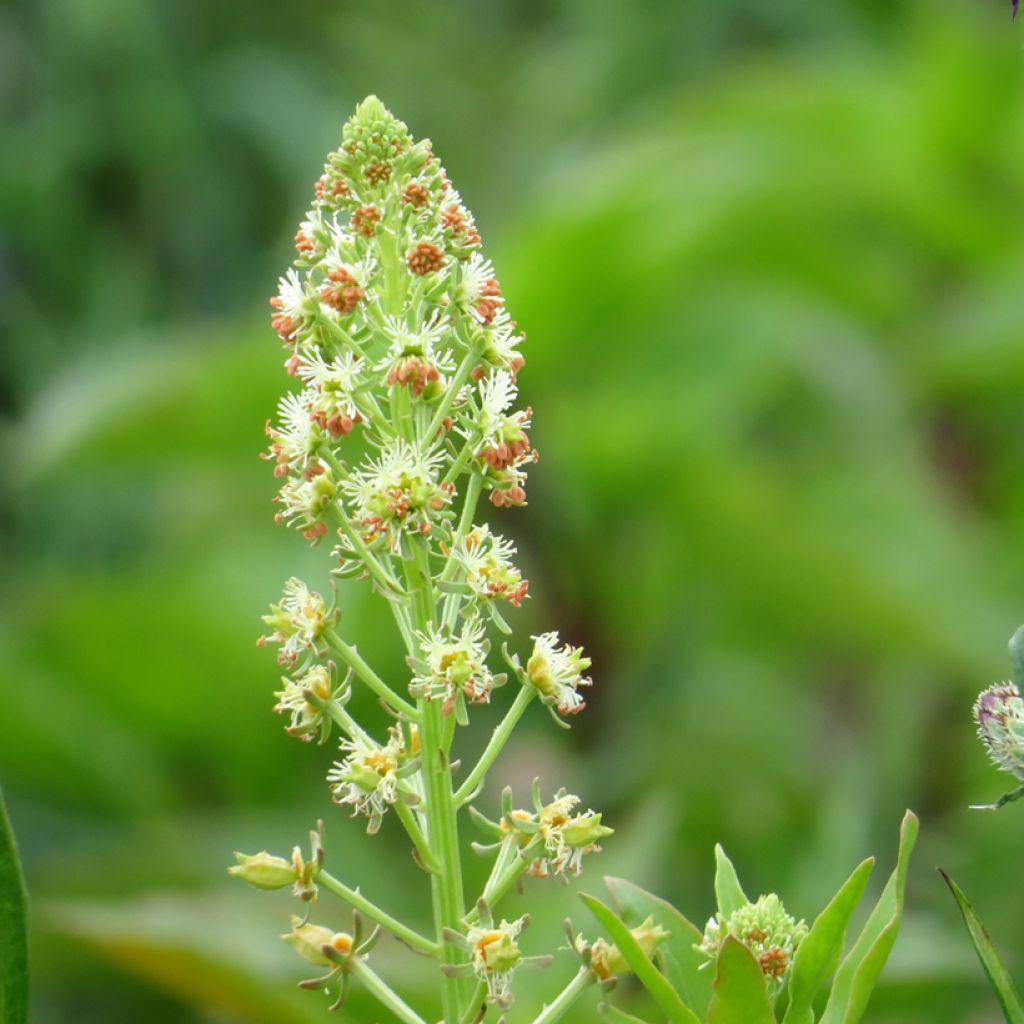

Reseda odorata Grandiflora Seeds - Garden mignonette
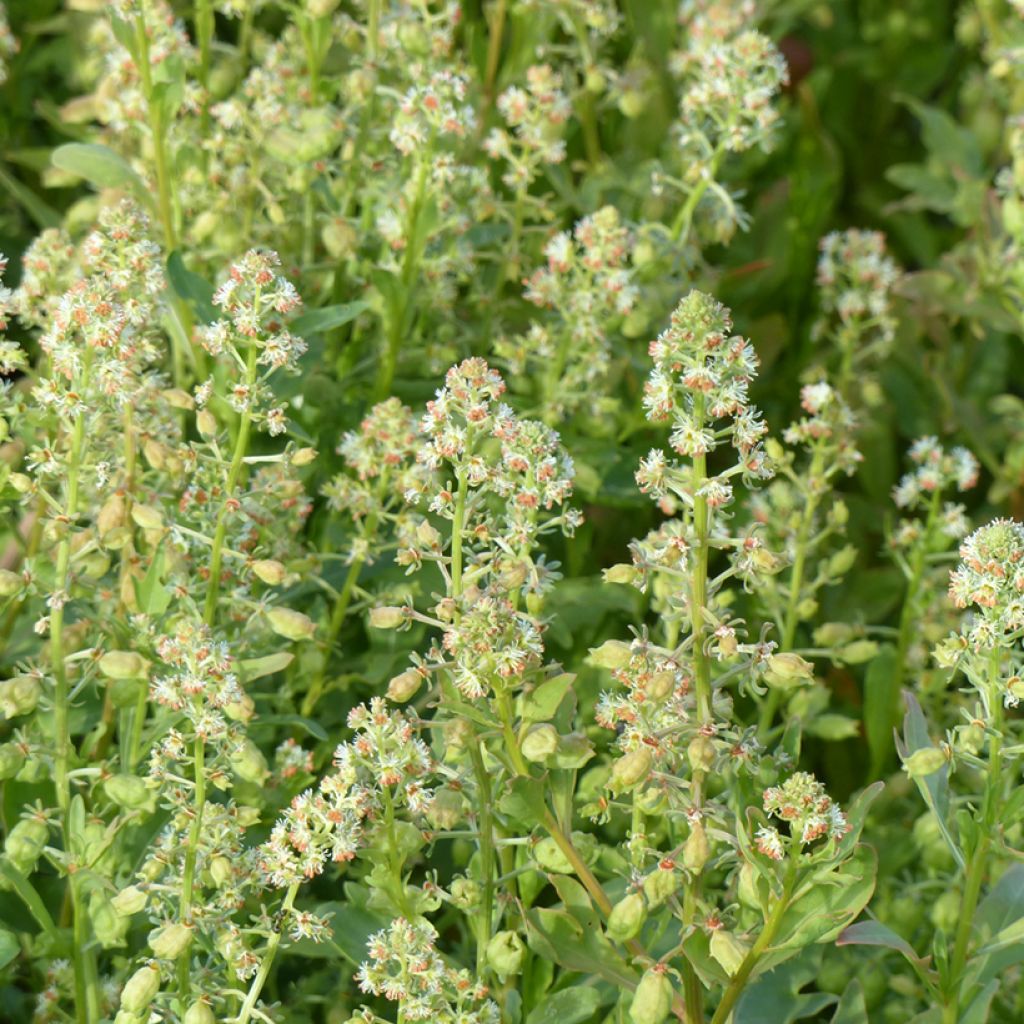

Reseda odorata Grandiflora Seeds - Garden mignonette
Reseda odorata Grandiflora Seeds - Garden mignonette
Reseda odorata Grandiflora
Garden mignonette, Common mignonette
Special offer!
Receive a €20 voucher for any order over €90 (excluding delivery costs, credit notes, and plastic-free options)!
1- Add your favorite plants to your cart.
2- Once you have reached €90, confirm your order (you can even choose the delivery date!).
3- As soon as your order is shipped, you will receive an email containing your voucher code, valid for 3 months (90 days).
Your voucher is unique and can only be used once, for any order with a minimum value of €20, excluding delivery costs.
Can be combined with other current offers, non-divisible and non-refundable.
Home or relay delivery (depending on size and destination)
Schedule delivery date,
and select date in basket
This plant carries a 6 months recovery warranty
More information
We guarantee the quality of our plants for a full growing cycle, and will replace at our expense any plant that fails to recover under normal climatic and planting conditions.
Does this plant fit my garden?
Set up your Plantfit profile →
Description
Reseda odorata 'Grandiflora' is a compact selection of sweet mignonette that produces large clusters of yellow-green flowers with a sweet and sugary scent. It used to be found in many gardens and this annual plant deserves to be rediscovered: it is a nectar-rich, unassuming, pleasantly fragrant plant, easy to sow and cultivate. It blooms for several weeks in summer, bringing life to borders and sunny beds. The mignonette enhances all the plants it accompanies, both in the garden and in bouquets. This compact variety 'Grandiflora' grows very well in pots on the terrace or balcony.
Reseda odorata 'Grandiflora' belongs to the family of resedas, it is a horticultural selection of Sweet Mignonette. It is an annual plant that germinates, flowers and produces seeds within a few months before disappearing. Probably native to the Mediterranean basin, particularly North Africa, the species is widespread in many regions. It is used in the composition of many perfumes. The 'Grandiflora' cultivar blooms all summer, from June to September-October, depending on the sowing date, if care is taken to regularly remove faded flowers. The plant develops strong, branching stems, initially spreading and then upright, forming a clump about forty centimetres in all directions. The leaves are arranged alternately on the stems. They are entire or lobed, toothed or divided into segments, measuring between 2 and 15 cm long. Those that make up the basal rosette are larger than those on the stems. The inflorescence is a large pyramid-shaped cluster of numerous flowers. The flower has six petals of a pale yellow-green, with the upper ones divided into three narrow lobes. The centre of the corolla is occupied by numerous stamens terminated by large pendulous orange anthers. The flowers are rich in nectar and visited by bees. After pollination, fruits form which are capsules containing seeds. When conditions are suitable, the sweet mignonette self-sows randomly in the garden.
The 'Grandiflora' sweet mignonette is an elegant, generous, yet simple plant. It can be sown directly in the ground in spring, among perennials or small bushes, in a natural garden or a cottage garden. It can be planted in border beds, rockeries, or even in the vegetable garden for cut flowers. Some ideas for associations: with tree mallows, fragrant ornamental tobaccos, four o'clocks, wallflowers ...
Report an error about the product description
Flowering
Foliage
Plant habit
Botanical data
Reseda
odorata
Grandiflora
Resedaceae
Garden mignonette, Common mignonette
Cultivar or hybrid
Other Reseda Seeds - Wild mignonette
View all →Planting and care
Two methods of sowing: directly in place, in April-May (as soon as the temperature reaches 10 °C), or in autumn, under shelter, for planting in the garden after the last frost.
Prepare the bed or border carefully, loosening the soil with a fork and levelling the surface. Sow by broadcasting, lightly covering the seeds or in furrows 2 cm deep, spaced 25 to 30 cm apart. Scatter the seeds in the furrows, 5 cm apart. Cover them with light soil, firm the rows with the back of a rake, and water lightly. Keep the soil slightly moist until germination. If necessary, thin out to leave one plant every 25-30 cm.
Sow in trays or pots: sow the mignonette seeds from March or in September. Protect the young plants from the cold (in a bright room between 10 and 13°C) to transplant them in April-May in the garden or pots, once the risk of frost has passed.
You can also collect the spontaneous seedlings visible at the end of summer, and transplant the seedlings into pots filled with garden soil to plant them in May. Be careful to keep the rootballs intact to avoid disturbing the roots.
Cultivation:
Mignonette appreciates the sun and adapts to any well-loosened and properly drained soil (not too clayey or compact), rather rich and moist. Its roots can rot in excessively wet soil. It grows and flowers easily, sometimes self-seeding, which creates beautiful natural beds that require little maintenance. Remove faded flowers to prolong flowering.
Container cultivation: choose a sufficiently deep pot, at least 40 cm in diameter, with drainage holes at the bottom. Use a mixture of garden soil, potting soil, and well-decomposed compost. Sow, lightly cover with fine soil, firm and water regularly. Keep only three plants per pot. The tips of the shoots can be pinched to encourage branching. Use flowering plant fertiliser in the watering water.
Sowing period
Intended location
Planting & care advice
This item has not been reviewed yet - be the first to leave a review about it.
Similar products
Haven't found what you were looking for?
Hardiness is the lowest winter temperature a plant can endure without suffering serious damage or even dying. However, hardiness is affected by location (a sheltered area, such as a patio), protection (winter cover) and soil type (hardiness is improved by well-drained soil).

Photo Sharing Terms & Conditions
In order to encourage gardeners to interact and share their experiences, Promesse de fleurs offers various media enabling content to be uploaded onto its Site - in particular via the ‘Photo sharing’ module.
The User agrees to refrain from:
- Posting any content that is illegal, prejudicial, insulting, racist, inciteful to hatred, revisionist, contrary to public decency, that infringes on privacy or on the privacy rights of third parties, in particular the publicity rights of persons and goods, intellectual property rights, or the right to privacy.
- Submitting content on behalf of a third party;
- Impersonate the identity of a third party and/or publish any personal information about a third party;
In general, the User undertakes to refrain from any unethical behaviour.
All Content (in particular text, comments, files, images, photos, videos, creative works, etc.), which may be subject to property or intellectual property rights, image or other private rights, shall remain the property of the User, subject to the limited rights granted by the terms of the licence granted by Promesse de fleurs as stated below. Users are at liberty to publish or not to publish such Content on the Site, notably via the ‘Photo Sharing’ facility, and accept that this Content shall be made public and freely accessible, notably on the Internet.
Users further acknowledge, undertake to have ,and guarantee that they hold all necessary rights and permissions to publish such material on the Site, in particular with regard to the legislation in force pertaining to any privacy, property, intellectual property, image, or contractual rights, or rights of any other nature. By publishing such Content on the Site, Users acknowledge accepting full liability as publishers of the Content within the meaning of the law, and grant Promesse de fleurs, free of charge, an inclusive, worldwide licence for the said Content for the entire duration of its publication, including all reproduction, representation, up/downloading, displaying, performing, transmission, and storage rights.
Users also grant permission for their name to be linked to the Content and accept that this link may not always be made available.
By engaging in posting material, Users consent to their Content becoming automatically accessible on the Internet, in particular on other sites and/or blogs and/or web pages of the Promesse de fleurs site, including in particular social pages and the Promesse de fleurs catalogue.
Users may secure the removal of entrusted content free of charge by issuing a simple request via our contact form.
The flowering period indicated on our website applies to countries and regions located in USDA zone 8 (France, the United Kingdom, Ireland, the Netherlands, etc.)
It will vary according to where you live:
- In zones 9 to 10 (Italy, Spain, Greece, etc.), flowering will occur about 2 to 4 weeks earlier.
- In zones 6 to 7 (Germany, Poland, Slovenia, and lower mountainous regions), flowering will be delayed by 2 to 3 weeks.
- In zone 5 (Central Europe, Scandinavia), blooming will be delayed by 3 to 5 weeks.
In temperate climates, pruning of spring-flowering shrubs (forsythia, spireas, etc.) should be done just after flowering.
Pruning of summer-flowering shrubs (Indian Lilac, Perovskia, etc.) can be done in winter or spring.
In cold regions as well as with frost-sensitive plants, avoid pruning too early when severe frosts may still occur.
The planting period indicated on our website applies to countries and regions located in USDA zone 8 (France, United Kingdom, Ireland, Netherlands).
It will vary according to where you live:
- In Mediterranean zones (Marseille, Madrid, Milan, etc.), autumn and winter are the best planting periods.
- In continental zones (Strasbourg, Munich, Vienna, etc.), delay planting by 2 to 3 weeks in spring and bring it forward by 2 to 4 weeks in autumn.
- In mountainous regions (the Alps, Pyrenees, Carpathians, etc.), it is best to plant in late spring (May-June) or late summer (August-September).
The harvesting period indicated on our website applies to countries and regions in USDA zone 8 (France, England, Ireland, the Netherlands).
In colder areas (Scandinavia, Poland, Austria...) fruit and vegetable harvests are likely to be delayed by 3-4 weeks.
In warmer areas (Italy, Spain, Greece, etc.), harvesting will probably take place earlier, depending on weather conditions.
The sowing periods indicated on our website apply to countries and regions within USDA Zone 8 (France, UK, Ireland, Netherlands).
In colder areas (Scandinavia, Poland, Austria...), delay any outdoor sowing by 3-4 weeks, or sow under glass.
In warmer climes (Italy, Spain, Greece, etc.), bring outdoor sowing forward by a few weeks.






























